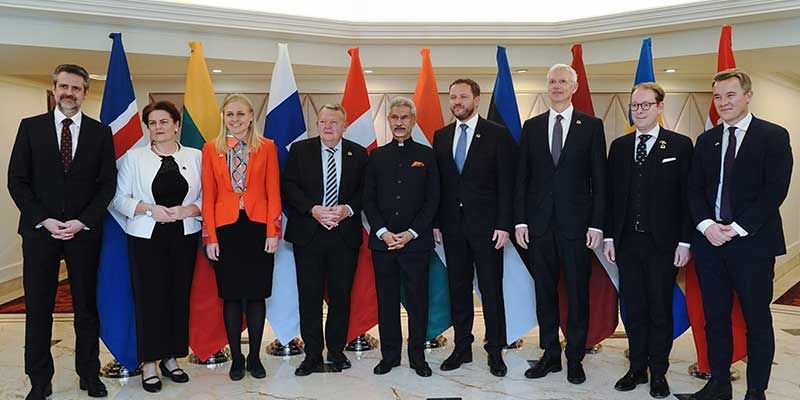- World
- Feb 23
Explainer - What is Nordic-Baltic Eight?
The India-Nordic-Baltic Eight (NB8) meeting was held on the sidelines of the Raisina Dialogue in New Delhi on February 22.
Minister of External Affairs S. Jaishankar said the exchange of perspectives on regional, global and multilateral issues was extremely useful.
Nordic-Baltic cooperation
• Nordic-Baltic cooperation or NB8 is a regional cooperation format which has brought together five Nordic (Denmark, Finland, Iceland, Norway and Sweden) and the three Baltic (Estonia, Latvia and Lithuania) countries in order to discuss important regional and international issues in an informal atmosphere.
• In December 1990, the first Nordic and Baltic Foreign Ministers’ meeting was held in Copenhagen and gave impetus for the format.
• Named as 5+3 in the beginning, it later changed its name and scope of cooperation in 1992 in order to discuss important regional and international issues in an informal atmosphere.
• In 2000, it was decided that the Nordic-Baltic cooperation format would be called Nordic-Baltic Eight (NB8).
• In 2024, the NB8 is chaired by Sweden which was taken over from Latvia.
• Over the years, a number of regular expert-level, as well as high-level meetings have developed, covering a wide variety of sectors. On the political level, the annual meetings of prime ministers and foreign ministers serve as the main format of cooperation (these have been organised since 1993).
• One of the main documents on NB8 cooperation is the NB8 Wise Men Report, also known as the Birkavs-Gade Report, completed in August 2010, which provides concrete guidelines for promoting cooperation between the eight countries.
• Nordic and Baltic prime ministers and foreign ministers meet annually to discuss questions of regional interest in the NB8 format.
• In addition to regional cooperation, NB8 has expanded to the so-called partner formats. One of the most important is the Enhanced Partnership in Northern Europe (e-PINE), launched by the United States in 2003. E-PINE developed out of regular NB8+USA meetings with the main objective of increasing freedom, security and economic prosperity in the region and its surrounding area (Moldova, Ukraine, Belarus and South Caucasus) within the framework of the Eastern Partnership.
• The Nordic countries (Denmark, Finland, Iceland, Norway and Sweden) are among the most innovative and sustainable economies in the world.
• They rank consistently at the top of global rankings in innovation as well as sustainability. When combined with the Baltic nations (Estonia, Latvia and Lithuania) that are global leaders in niche technologies, the region of eight nations becomes an innovation and technological powerhouse where the power of innovation is used to strengthen the competitiveness and sustainability of businesses and industries, cities and the society at large.
• While the individual market sizes of the Nordic-Baltic countries are small, taken together, they account for a very sizeable market.
Manorama Yearbook app is now available on Google Play Store and iOS App Store

